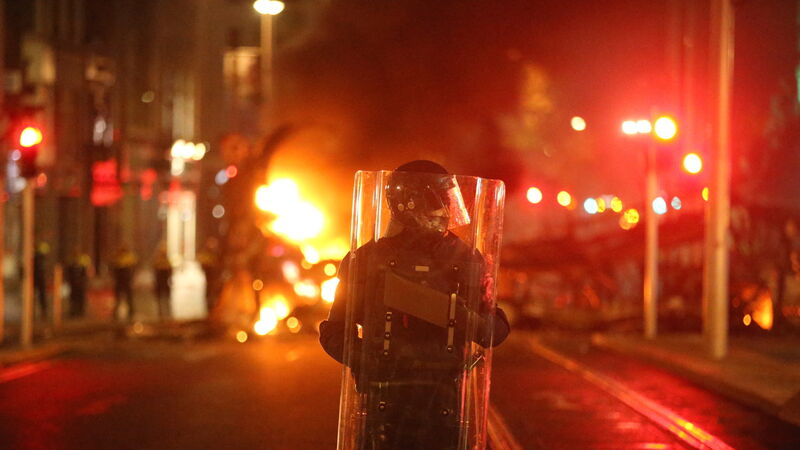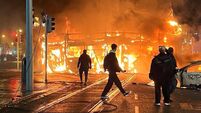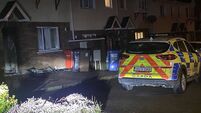Irish far right 'using false information' to target immigrants, warns Policing Authority

Policing Authority said the stabbing attack on children in Dublin city centre and subsequent violent disorder on November 23 last demonstrated 'a fundamental shift' in how Irish society was responding to immigration. Picture: Stephen Collins/Collins
The Irish far right is successfully using disinformation to target vulnerable communities, claiming groups such as asylum seekers and the LGBT+ community pose “an existential threat” to Ireland, the Policing Authority has said.
It said the nature of the violent disorder at the “more ominous protests” should not enjoy the “constitutional protections” afforded to peaceful protests.













